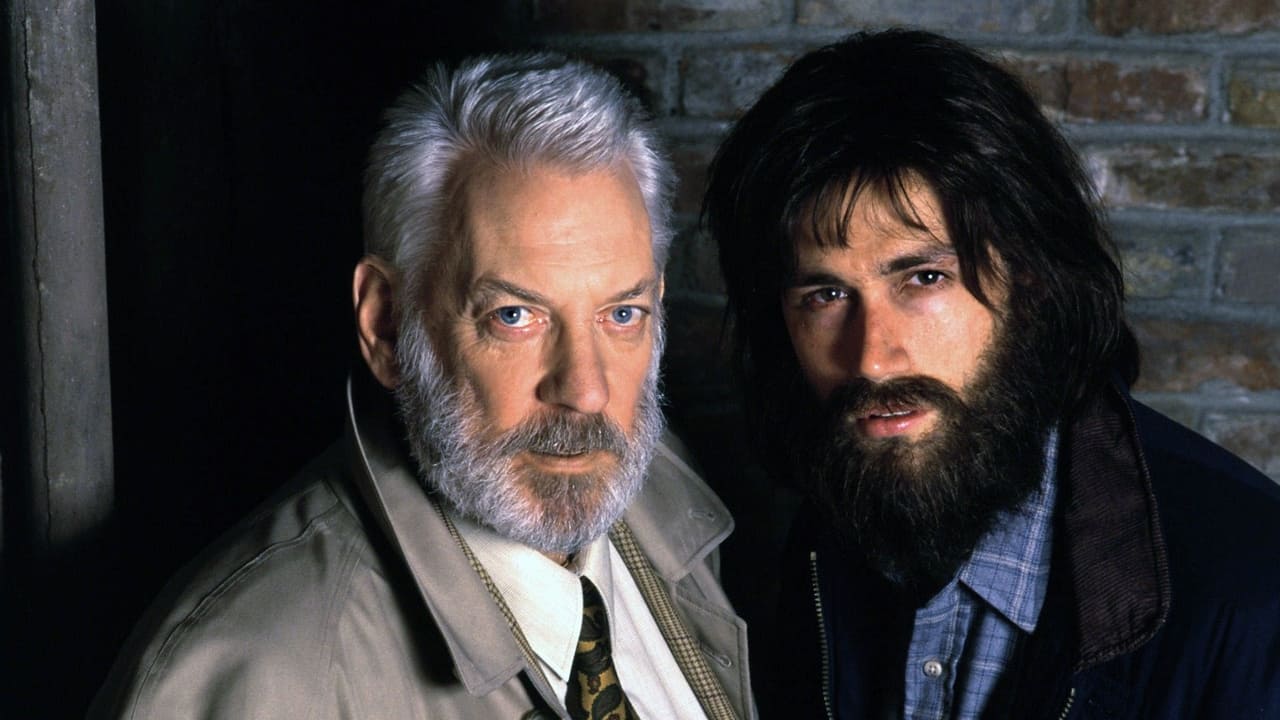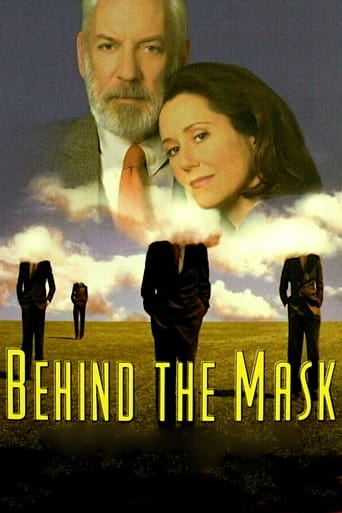Fairaher
The film makes a home in your brain and the only cure is to see it again.
filippaberry84
I think this is a new genre that they're all sort of working their way through it and haven't got all the kinks worked out yet but it's a genre that works for me.
Roy Hart
If you're interested in the topic at hand, you should just watch it and judge yourself because the reviews have gone very biased by people that didn't even watch it and just hate (or love) the creator. I liked it, it was well written, narrated, and directed and it was about a topic that interests me.
Payno
I think this is a new genre that they're all sort of working their way through it and haven't got all the kinks worked out yet but it's a genre that works for me.
robert-temple-1
This is a wonderfully sensitive film of a true story about a handicapped young man suffering from a form of autism, of how through patience and understanding he was brought into society, and reunited with his lost father. It is something of a tear-jerker, but then so is the true story itself. There is some very moving surprise footage at the end of the film, the nature which I cannot reveal because of the rules of reviewing. Donald Sutherland shows what an old pro he is by magisterially taking command of the whole action by his profoundly emotional central performance. He has rarely shown himself more sensitive than in this film. All the performances are good, and Matthew Fox does a wonderful job of portraying the autistic James Jones. The story is really heart-breaking, and the suffering of autistic persons is extraordinarily well portrayed here. Ron Sauvé, who died only a few months ago, gives a very moving performance as Gordon Jones. This is a very serious and unsensationalized attempt to portray the traumas of autism, both for the autistic and those associated with them either as family, at work, or at school. Such films do a lot of good because they help a wider public understand things which to most people may seem wholly incomprehensible. After all, most human suffering which is connected with disabilities is greatly magnified and worsened by the ignorance of other people who do not understand, and who hence act with inhuman insensitivity towards the afflicted individuals and their families. Watching 'James Jones' struggle in the workplace, even one where most of the employees themselves are disabled in some way or other, as in this film, is a lesson in humility to us all. His simple craving to find his lost father and have someone to love, and the apparent hopelessness of his achieving such a wish, take cinematic pathos to new levels. The story does not focus on James Jones alone by any means, but subtle portrays the alienation between Sutherland and his own son, sensitively played by Bradley Whitford, so that the young man who is unhappy because he has a father is contrasted with the young man who is unhappy because he does not. Sutherland, as a compulsive workaholic, is in his own way as 'absent' to his son, despite their physical proximity, as James Jones's father is to his by being genuinely 'lost'. There is another tragic subplot, concerning the callous and heartless mistreatment of Sutherland by his professional colleagues, which serves further to underline the social and personal hypocrisy of which this film also complains. But this is not just a 'worthy' film, it is gripping and emotional because it is so well done. Tom McLoughlin has done a very good job of directing it.
rsoonsa
An interesting film based upon the experiences of Dr. Robert Shushan and his British Columbian Centre for the Mentally and Physically Disabled, MASK focuses upon his complex relationship with a disturbed young man, James Jones, employed at the Centre as a janitor, and the psychologist's attempt to locate the father of Jones. After the overworking Shushan (Donald Sutherland) suffers a heart attack, Jones (Matthew Fox) who is responsible for saving his life, urges the older man to repay him by helping him search for his sire, but the Centre's board members have decided that the convalescent should withdraw from his longstanding position as director. Sutherland portrays a workaholic who has neglected his family, and his perceived failure by his son Brian (Bradley Whitford) provides impetus for a surrogate father/son agnation to develop between Shushan and the parentally bereft Jones. Edited much more crisply than most films made for television, it is necessary that MASK be shot primarily in Vancouver and its eastern suburb Burnaby, benefiting therewith from employment of handicapped individuals, in bit parts and as extras, most of whom are involved in local acting workshops for the mentally impaired. The work is somewhat clichéd and lifeless until its closing scenes, which are entirely potent and enhanced by actual footage of the real James Jones in a moving after piece directly relating to the climactic moments of the scenario. Sutherland, Fox and Whitford are impressive and a nicely nuanced thematic score is contributed by Jonathan Goldsmith for a production which can be added to the short list of motion pictures which treat without self-consciousness of the importance of adult father/son consanguinity.

